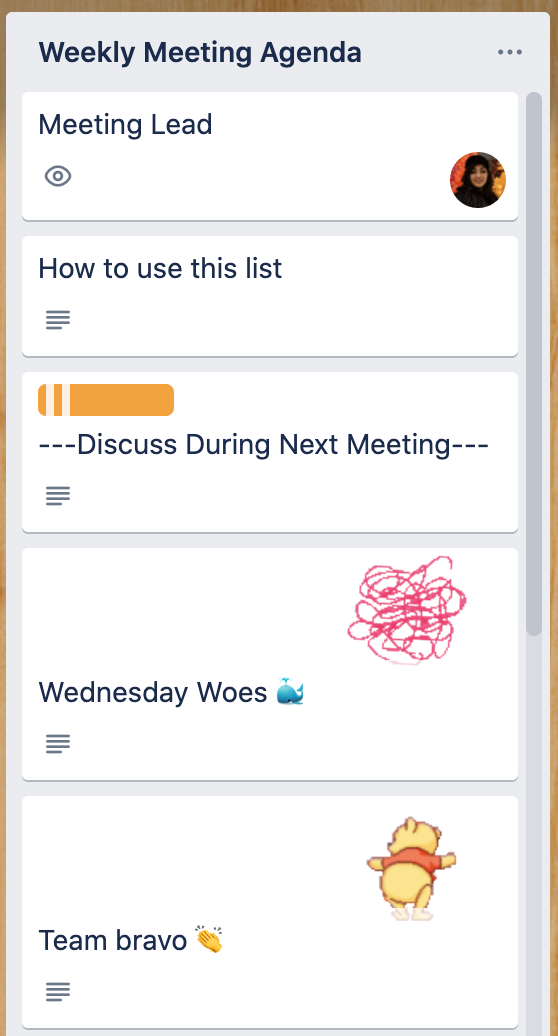You spilled your coffee, your neighbor is way too loud, and now your project deadline has been moved up by a few weeks—not the best series of events to put you in a chipper mood.
For some of us working from home, throwing our hands up and briefly screaming into a pillow can let that stress out. For some of us in offices or working remotely from elsewhere, texting a friend or pinging a colleague you’re close to is commonplace.
“Can I vent for a second?”
Venting is different from complaining—when venting, it is a brief release of emotion and frustration. It’s an expression of how you’re feeling in that moment while keeping in mind what you’re feeling is temporary. Complaining, on the other hand, tends to be chronic and is characterized by griping about the same issues and largely putting blame on an external factor for your own emotions.
While there is a thin line between venting and complaining, the main difference lies in that venting is a way of blowing off some steam, allowing you to go about your day in a relatively normal manner.
In the workplace, having good days and having bad days are a reality of life. On those tough days, go ahead and vent—it may even be a healthier alternative than keeping it all in. But how are you supposed to vent without putting your job, reputation, or relationships in jeopardy? How is one meant to vent responsibly when all you want to do is scream?

The Don’ts
The dos and don’ts of venting in the workplace can be a fine line between healthy expression and serious talk with your HR department. Let’s talk about what not to do when you’re looking for a way to cool down.
Keep The Chat Safe
Wanting to ping your work best friend about “how ridiculous” a colleague is behaving or how much you dislike your job may be tempting at the moment, but proceed with caution. Online chats aren’t foolproof to human error.
DMing the wrong person, or worse, pinging a group chat by accident could have serious implications for your work relationships and role. Just as easily, emailing your latest frustration to a colleague could easily land in the wrong hands.

When it comes to company communications, keep it company-appropriate. A good rule of thumb is to never say something on chat or email you wouldn’t want your team to unearth.
Choose Wisely
Choosing how to vent is one thing, choosing who you should vent to is equally, if not more, important. First and foremost, it’s about who you trust with handling not only your emotions but also the information you’re sharing.
For example, talking to a coworker you’ve been friends with since you began work is probably a better bet than venting to the new intern who may not know what to do with the information you’re sharing. Not only is it about maintaining a good impression and relationship with those you work with, it’s important to identify who can provide the support you may need.
If you’re upset about being overlooked for a promotion or the like, chatting with your supportive and empathetic colleague who you trust may be a better choice than someone else who typically feels uneasy about the empathetic and emotional side of work.
The Dos
Now that we know what to avoid, understanding ways to release some of that emotion is just as important.
Write It Down
Whether your tool of choice is pen and paper or a keyboard, express what you’re feeling by noting it down. Documenting your emotions is shown to reduce stress and emotional trauma, and even help regulate the feelings you have going on in the moment. Writing down what you’re feeling also helps with that “pent up” feeling.
Give yourself free rein and no interruptions and begin writing nonstop until you feel some of that tension ease up. By expressing yourself via writing, you may even be able to think more clearly about the issues at large that you’re facing. While not the only way to vent, writing it down a great start towards a better day.
Take A Walk
Taking a moment to go into nature, or even the city, for a quick walk can do more than just your garden variety exercise benefits. A brief stroll can help distract you, in a good way! Lower your blood pressure, enjoy the fresh air, and boost your mood from whatever is going on.

While pinging your closest coworker isn’t the best way to vent in the workplace, asking your colleague to go on a quick coffee run or even a walk around the block can do wonders. Not only are you physically distancing yourself from the workplace for a while, you also can share your troubles with a confidante in a way that doesn’t compromise the work environment.
Don’t have a colleague nearby that you can snag for a stroll? Video call a friend or coworker and ask them to chat. By removing the possibility of messaging or talking to the wrong person in a group chat or email, a private video call is a great alternative to let it all out.
(Just be sure you’re in a place where you have privacy from the rest of your workplace!)
Weekly Woes
At Trello, our weekly team meetings have an extra special agenda item: The Weekly Woe. Our meetings are on Wednesdays, so we fondly call them our Wednesday Woes.

During this 5-10 minute allotment, the team has an open floor to vent about whatever hurdles they’re facing—whether it be personal or professional. The benefits of airing it all out in meeting during a set time, is that more often than not, there is another colleague or manager attending that can help untangle whatever is going on.
For example: If your woe is that it’s taking way too long for you to get responses on a survey you created, it’s not uncommon for a higher manager to suggest that they can help you get responses from even larger teams.
Talking about our woes, whether it’s about how there’s noisy construction happening or about that project deadline that’s been stressing you out, helps us all feel more connected about empathetic towards one another.
Let It Out
Venting can be a healthy way of bonding and communicating with your colleagues, and doing so in a way that won’t jeopardize your career is what’s key. What’s important is communication—while some issues may be as minor as, “the printer is broken again”, or larger issues such as, “I don’t feel respected at work”, no matter the severity, it’s important to parse and let yourself express what you feel in a safe way.
Don’t keep it in, grab a pen and paper or a close friend and be sure to let it all out.







































